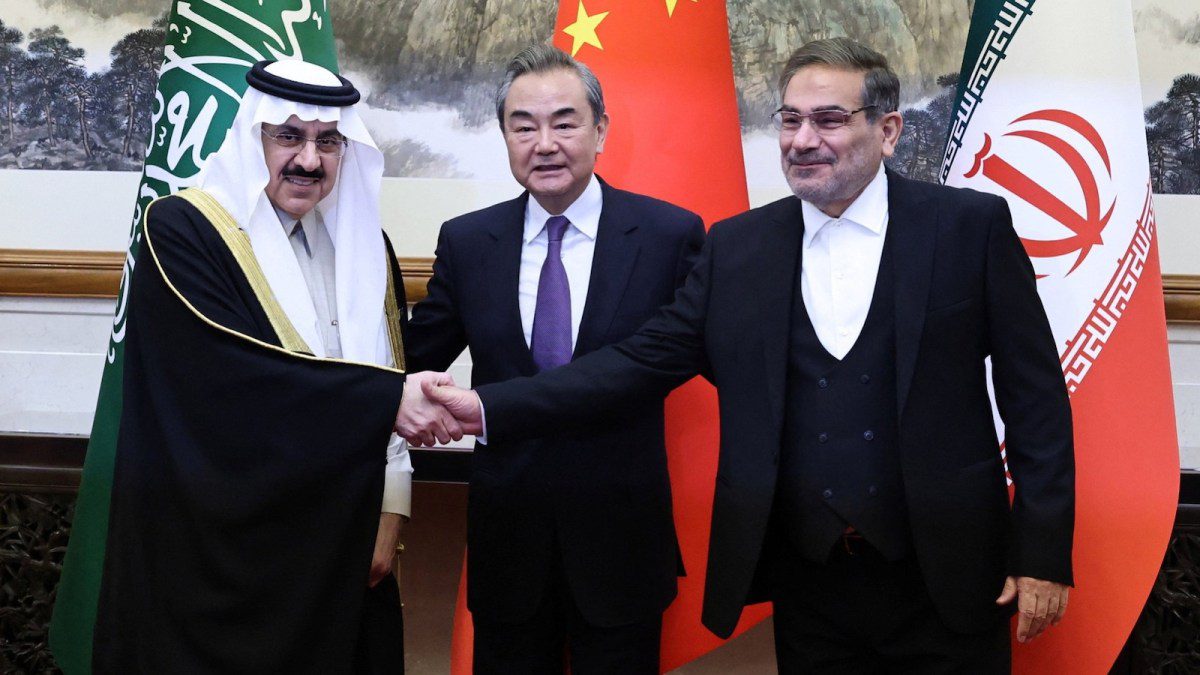Global Courant 2023-04-17 14:21:26
“Global infighting marks the end of an era of diplomacy.” For example, the front page of the April 11 print edition of The New York Times ran an article marking US President Joe Biden’s ceremonial visit to Ireland to commemorate the 25th anniversary of the Good Friday Agreements.
The commemoration served as an “unspoken reminder that such diplomatic breakthroughs are a thing of the past”, complained reporter Peter Bakker.
Certainly, he is right to limit his view to the record of the US and its vassal states on the Ukraine crisis. Secretary of State Antony Blinken has made it abundantly clear that the US wants nothing to do with negotiations to end the US proxy war in Ukraine.
Similarly, for eight years the US and its allies cynically used negotiations on the Minsk accords as a cover for war preparations. Then the US and the UK torpedoed the promising negotiations between Russia and Ukraine to end the war in April 2022.
But to declare diplomacy dead simply because American diplomacy is a corpse indicates blinding tunnel vision. Looking at countries beyond the West, the future of diplomacy looks increasingly bright. The Middle East is a clear example, one of too many to discuss here.
China brokers deal between Saudi Arabia and Iran
Early March, Iran and Saudi Arabia restored diplomatic relations after a seven-year span, a deal brokered by China and announced at a meeting of foreign policy officials from the two countries in Beijing in early April. This followed a visit by Chinese President Xi Jinping to Riyadh in December and a visit by Iranian President Ebrahim Raisi to Xi in Beijing in February.
The countries will do so at the beginning of June Reopen embassies and consulatesand they want to cooperate on trade, technology and counter-terrorism.
Wang Yi, China’s top foreign policy official, summed things up as follows: “This is a victory for dialogue, a victory for peace, and is major positive news for the world that is so turbulent and unsettled at the moment, and it sends a clear message.”
The antagonism between Riyadh and Tehran has shaped much of the conflict in the Middle East, including the terrible war in Yemen, a humanitarian catastrophe which has cost 230,000 lives in fighting and famine. There is now movement for a “permanent ceasefireand end the war, perhaps the first dividend of the “clear signal,” said Wang Yi.
Like The Intercept noticed, “To help end the war in Yemen, all China had to do was be reasonable. With Joe Biden nowhere to be found, Chinese diplomacy has set the stage for Saudi concessions and ceasefire talks.”
As this article is being written, there will be news of an exchange of nearly 900 prisoners for three days between the warring Yemeni factions, unthinkable just a few weeks ago.
Moscow mediates reconciliation between Syria and Saudis
Diplomacy seems to be spreading like a contagion in the region. In the wake of the Beijing-brokered Syria-Saudi accords, Moscow has moved to bring about a reconciliation between Saudi Arabia and Syria leading to that of Syria to rejoin the Arab League.
The Saudis plan to invite Syrian President Bashar al-Assad to an Arab League summit on May 19. Washington has worked to prevent more than a decade of threats and sanctions.
It is clear that the “no borders” partnership between Moscow and Beijing has facilitated reconciliation between Syria, a Russian ally, and Saudi Arabia, Beijing’s new friend. Perhaps a hint of things to come.
Much of these diplomatic efforts are simply designed to undo the damage done to Syria after the Arab Spring turmoil in 2011, which turned the US into a full-scale regime-change operation and civil war. As part of his anti-Syrian vendetta, the US has used all means to contain and isolate Syria from its Arab neighbors for the past 12 years.
It also has nearly 1,000 U.S. soldiers (the official count) fighting in Syria to this day in a undeclared war unknown for most American people. Those troops occupy a region that is the agricultural granary and source of oil for Syria, which is starving for food and energy after the devastation wrought by years of war.
It has always been argued that US troops are there to fight Islamic State (ISIS) or its latest incarnation, but as Aaron Maté has demonstrated the most compelling is that the real goal remains regime change in Syria. (If the sage Jimmy Dorre often asks: If Syria is fighting ISIS, why is the US fighting Syria?)
Diplomacy for peace
All this diplomatic movement in such a short time is almost dizzying. They were opened by China’s masterful initiative with Iran and Saudi Arabia. And they are designed to bring stability and peace to a region that developing countries desperately need to move forward. And that development can help the world’s economies.
The US made its own unique contribution to the process by sending CIA Director William Burns to Saudi Arabia on an unannounced visit, complaining that the The US was “blindsided” by the move to reconcile with the Saudis.
Some see Burns’ visit as a warning or perhaps even a threat. Crown Prince Mohammed bin Salman Al Saud will want to strengthen his security detail.
Returning to the New York Times’ account of Biden’s diplomatic failures, one success in the eyes of the Times was cited: “Mr. Biden and Secretary of State Antony J Blinken have successfully united NATO against the Russian invasion of Ukraine and have received support from other countries. also.”
This is perhaps a premature announcement of success, if one takes a closer look at the situation in the European Union. But be that as it may, this is a “diplomatic” initiative to advance Biden’s vicious proxy war to bring down Russia, cynically using Ukrainians as cannon fodder. Diplomacy for War.
Quite a contradiction. Diplomacy for War vs Diplomacy for Peace.
This article first appeared on Antiwar.com.
Similar:
Loading…




